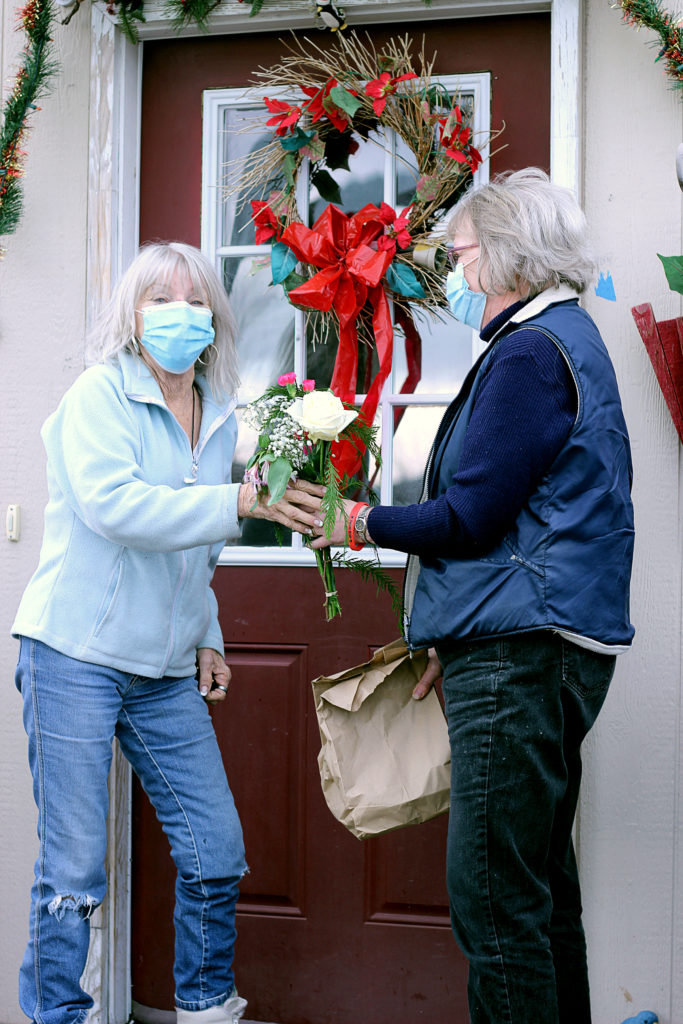Living in America, the notion of “health” is often deeply focused on nutrition and physical well-being, like how much time you spend at the gym. April 7 is World Health Day, a day to celebrate health and well-being, including mental health.
The World Health Organization (WHO) defines health as “a state of complete physical, mental and social well-being.” We all need nutrition, and as social beings, we all need to feel connected, especially older adults age who are vulnerable to isolation. At the Council on Aging of Central Oregon, our meal-delivery program, Meals on Wheels, and our weekly phone call program, Caring Connections, meet the needs of lonely or isolated seniors as an act of care, specifically as an act of support for mental healthcare.
25% of seniors are socially isolated
According to the National Academies of Sciences, Engineering, and Medicine, nearly one in four older adults ages 65 and older are socially isolated. Isolation is simply defined as a lack of social connections. Anxiety, depression, and low self-esteem are all associated with isolation — which can also put your physical health at risk.
According to the Centers for Disease and Prevention, social isolation significantly increases the risk of premature death, heart disease, and stroke. It is associated with nearly a 50-percent increased risk of dementia. Isolation is also a precursor for unhealthy habits like smoking, excessive drinking, and limited or disrupted sleep. It’s a vicious cycle! First, the behaviors, then the feelings of depression and stress that add to the feeling of isolation.
How to stay connected with friends and family
In the United States, reducing isolation is particularly challenging. Because, unlike households that include older people around the world, we are far less likely to live with extended family. Worldwide, an average of 38-percent of people over 60 live with extended family. According to the Pew Research Center, in America, only 6 percent of older adults live in a multigenerational household. According to the U.S. Census Bureau, one-third of all seniors live by themselves.
Given the vulnerability of seniors living in isolation, we need to do more to counter this widespread problem, especially for those living in rural areas or outside city centers.
Here are 10 physical and digital ways to encourage older adults to stay connected with friends, family, and community.
- Plan video chats or phone calls with family and friends.
- Invite neighbors over for coffee.
- Organize daily or frequent short walks with a friend or family member.
- Take advantage of the number of ways online classes have flourished during the pandemic and sign up for one that revives or continues a hobby or passion.
- Join a virtual book club.
- Play online games like Scrabble or Words with Friends with partners found for you worldwide.
- Consider finding a roommate for daily doses of human interaction, however small or large you want to make them.
- Sign up for a volunteer gig.
- If you receive Meals on Wheels, visit with your Council on Aging Meals of Central Oregon delivery driver.
- Chat one-on-one with a volunteer through the Council on Aging of Central Oregon Caring Connections program.

Meals on Wheels delivers meals to seniors 60 and up, half of whom live alone. In 2021 alone, Central Oregon’s Meals on Wheels program delivered almost 100,000 meals to homebound seniors, five days a week, 52 weeks a year! Meals on Wheels drivers serve as a point of personal contact and a consistent, routine presence in the lives of our seniors.
Caring Connections pairs isolated and homebound seniors who want to meet new people with volunteers who call for weekly chats or in-person check-ins. The special relationship between an older adult and a volunteer enables these seniors to have more significant social interaction to maintain healthy, independent living. These volunteers are the only person these seniors may talk to during the day. And volunteers sometimes turn into long-term friends.
These programs can provide consistent contact and follow-up in a senior’s life to support them at home while nurturing their sense of community to offset feelings of isolation.
Find out more about the Council on Aging of Central Oregon food services and the Caring Connection program by calling (541) 678-5483.


